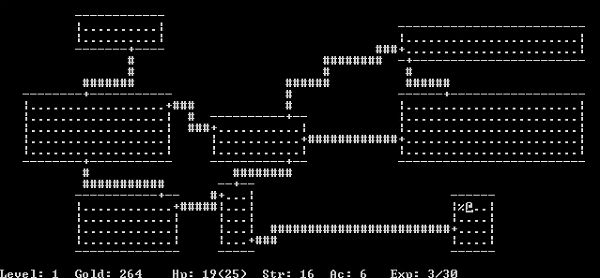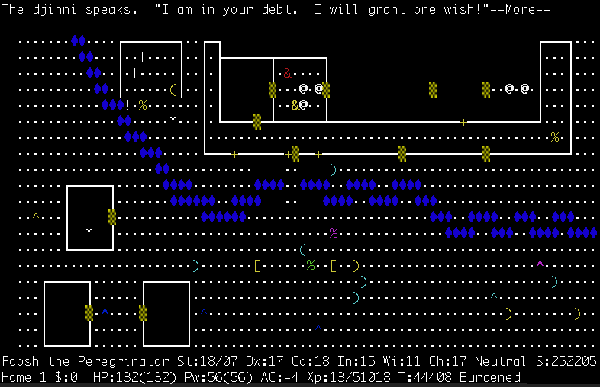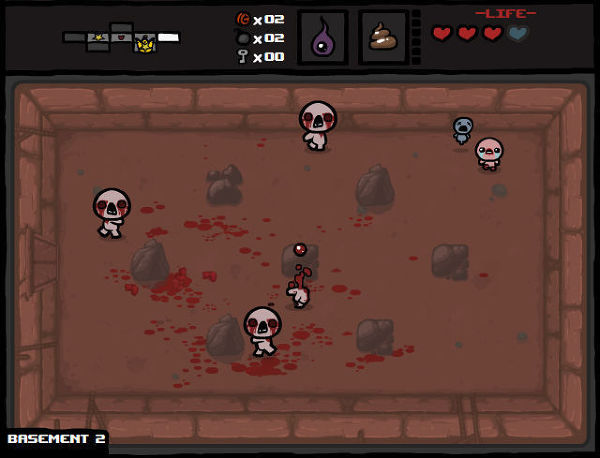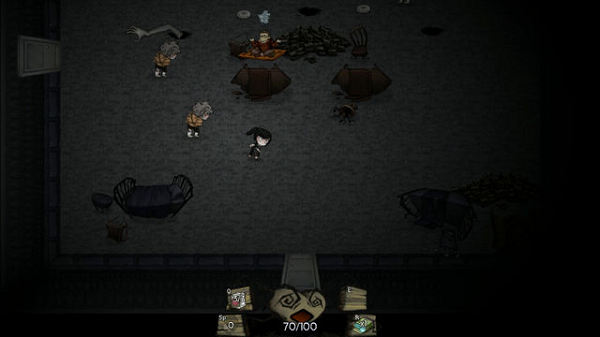
Today I started playing a little game called Rogue Shooter: The FPS Roguelike, which has to be one of the most to-the-point titles of a video game ever. It’s a fun, little first-person shooter that mixes itself with roguelike elements; the same thing Paranautical Activity and Tower of Guns did before, but with a different style and at a very low price. Yet, when I went to take a peek at the community hub for this game, the very first thread that popped up was one accusing the game of not being a roguelike at all, and of using the term to sell more copies.
This is an accusation that gets thrown around a lot lately, and while I can’t say they are completely wrong, I do think the people waging this war against modern roguelike games aren’t seeing the bigger picture. As somebody who plays a lot of these games, both for my job here at Rely on Horror and in my own free time, I personally think that the roguelike genre has long been due for some reforming to accommodate more branches. Let’s start off with a little history lesson:
Rogue was a turn-based strategy game that was released in the early 80’s, wherein players had to descend into a dungeon, fight monsters and acquire loot. The big selling point of the game was that everything was randomized and that there were no saves to reload when a player died; instead player characters that passed away were simply gone and their owners would have to start anew. Other games quickly adopted these concepts and ended up resembling Rogue, but with their own twists to it, thus the “roguelike” genre was born.

In 2008, the Roguelike Development Conference attempted to establish a definition for the genre and they came up with the following rules:
- Games have to feature a randomized dungeon
- Items never maintain a set function
- All actions are turn-based
- The games are single-player
- The games feature permadeath
Now, these are all features that characterized Rogue and most games in the roguelike genre stayed within these rules, but it didn’t take long until after the conference for things to start going crazy. In 2009, Spelunky released, which was a 2D, real-time dungeon crawler that met most of the criteria, so people started calling it a roguelike. In 2011, The Binding of Isaac released; a top-down dungeon crawler that was also real-time and again met most of the criteria. Then, FTL: Faster Than Light released in 2012 and didn’t have a dungeon at all, nor was it turn-based, but it still featured random generation, permadeath and it was a single player game; people, as you could have guessed, called that a roguelike as well.

My problems with the roguelike genre are twofold, but this illustrates the first one: the Berlin Interpretation, defined at the Roguelike Development Conference 2008 leaves no room for branches from the core elements. When you look at a genre like role-playing games, there are a ton of branches that accommodate different styles of gameplay: action RPGs, Tactical RPGs, MMORPGs, etc. This means that a game like Fire Emblem can be categorized as a role-playing game, despite of the fact that most of it plays out like a strategy game.
So, should we have an action-roguelike genre? That’s a step in the right direction, but it brings me to my next point: “roguelike” sounds too much like a derogatory term. Totalbiscuit recently pointed out how the name has similar connotations to “Doom-clone,” which is how we used to call first-person shooters that weren’t part of the Doom franchise. Imagine if nowadays we’d call the upcoming, new Borderlands game a Doom-clone, simply because it’s a shooter that you play through the eyes of your character. That would be ludicrous – so why do we treat these games that way?
Sadly, it would be difficult to alter the way we refer to a genre, especially since everybody in the industry already uses the current term, but as long as we can start accepting branches I think we’ll solve a pretty big issue; FTL could be a strategy-roguelike, Isaac and Our Darker Purpose could be action-roguelikes or real-time-roguelikes, and maybe Spelunky could be something like a platformer-roguelike. It would make the genre a lot more welcoming to developers, it would mean nobody has to go on community hubs to spout accusations and it wouldn’t harm the basic genre in any way.

What are your thoughts on this matter? Do you perhaps have any alternative name in mind for the genre? Let us know in the comments!




